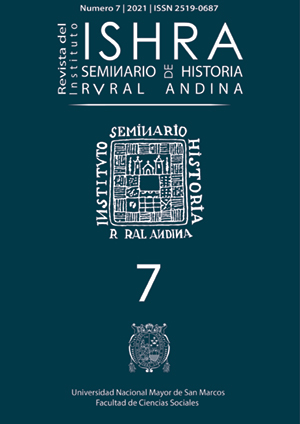International Theater Festival in Open Streets (Fiteca): Construction of alternative economic forms and configuration of territorial identity from the theater
DOI:
https://doi.org/10.15381/ishra.n7.18882Keywords:
FITECA, theatrical cultural-artistic processes, territorial identity, local actors, alternative economic forms, social economyAbstract
The present study aims to answer if the cultural-artistic theatrical processes developed, from Fiteca, constitute alternative economic forms that configure a territorial identity in La Balanza. For the purposes of this, an approach is made that includes the trajectory or historical memory of the experience of the Fiteca community, the analysis of its structure and internal organization, the external relations that it weaves with external agents and actors, as well as its relationship with the territory; and its future prospects. For this, semi-structured interviews were used through which dialogue with the members and collaborators of the organization was used in order to reveal the dynamics developed within Fiteca. Thus, it was possible to discern that the artistic-cultural practices and the dynamics developed around them by the Fiteca community are based on forms of cooperative and voluntary work as fundamental pillars of production and reproduction of their dynamics that, over the years, They have configured a territorial identity in the inhabitants of La Balanza. Likewise, its internal organization has a democratic foundation insofar as it collects the opinions and concerns of all its members and participants through general assemblies, where each one has a voice and vote. In addition, there is a division of labor through the organization of working groups or commissions for each area. Finally, the events and activities that the community develops are open to the general public and at no cost. Based on the characteristics described, Fiteca shares logic with alternative economic forms such as the social economy.
Downloads
Downloads
Published
Issue
Section
License
Copyright (c) 2021 Thalia Jara Mogollón

This work is licensed under a Creative Commons Attribution 4.0 International License.
AUTHORS RETAIN THEIR RIGHTS:
a. Authors retain their trade mark rights and patent, and also on any process or procedure described in the article.
b. Authors retain their right to share, copy, distribute, perform and publicly communicate their article (eg, to place their article in an institutional repository or publish it in a book), with an acknowledgment of its initial publication in the ISHRA, Revista del Instituto Seminario de Historia Rural Andina.
c. Authors retain theirs right to make a subsequent publication of their work, to use the article or any part thereof (eg a compilation of his papers, lecture notes, thesis, or a book), always indicating the source of publication (the originator of the work, journal, volume, number and date).






